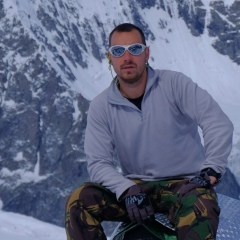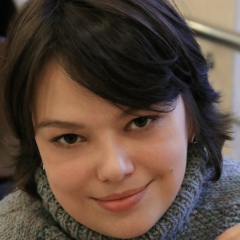#fridays_drugs_r_us@senbossya
Персонализированная медицина на основе генетической информации не оправдала возложенных на нее ожиданий.
Научный руководитель первой полной расшифровки человеческого генома Френсис Коллинз в 1999 году опубликовал основополагающую программную статью «Медицинские и общественные последствия проекта "Геном человека"». В ней он сделал предсказания о влиянии полученных генетических данных на методы диагностики, предотвращения и лечения многих заболеваний уже к 2010 году. В 2000 году он заявил, что «в более далекой перспективе, возможно в течение еще 15 или 20 лет, мы увидим полноценное преобразование медицины».
В новой работе (опубликована 29.01.19) анестезиолог Майкл Джойнер из Клиники Майо в Миннесоте (США) и эпидемиолог Найджел Панет из Университет штата Мичиган (США) высказывают сомнения о принципиальной реализуемости сделанных в конце прошлого века предсказаний. Авторы отмечают, что изначальные надежды на медицинскую генетику и персонализированные подходы были основаны на необоснованных предположениях о точной связи распространенных заболеваний с наследственными факторами. На самом деле мы сегодня понимаем, что в развитии таких проблем, как болезни сердца, депрессия, диабет, рак и других могут участвовать сотни генетических вариантов. Также ученые обращают внимание, что идея о персонализированном подходе к лечению распространенных заболеваний на данный момент практически забыта, а ранние успехи генетического скрининга и генотерапии, на которые были израсходованы огромные средства, ограничивается лишь несколькими редкими состояниями.
«Почти два десятилетия после первых предсказаний о захватывающих успехах, мы не обнаруживаем никакого влияния проекта "Геном человека" на ожидаемую продолжительность жизни или любой другой показатель общественного здоровья», — пишут авторы в статье. Принимая это во внимание, они предлагают «пересмотреть текущую одержимость» медицинской генетикой и «произвести переоценку приоритетов в области исследований».
Источник: https://indicator.ru/news/2019/02/06/personalizirovannuya-medicina-pereocenena/
Евгений Свердлов
биохимик, академик РАН, советник РАН в Институте молекулярной генетики, главный научный сотрудник Института биоорганической химии им. академиков М. М. Шемякина и Ю. А. Овчинникова. Лауреат Государственной премии РФ 2015 года в области науки и технологий.
"Научная ересь - Персонализированная (геномная) медицина
Ересь – это персонализированная медицина. На это выделяется громадное количество денег. Но всякая медицина персонализированна – врач смотрит больного, ставит диагноз. Сейчас говорят о медицине, основанной на знании последовательности генома. Якобы, исходя из этого, человек будет получать полный диагноз и схему лечения. Это ересь – на основании последовательности генома делать чудеса. Помочь возможно только при наследственных болезнях. Но большинство болезней сложны, в них вовлечено много генов, они взаимодействуют непредсказуемо. Есть запреты научные – то, чего нельзя сделать в принципе. Нельзя создать, например, две точные копии одного организма, так как при делении клетки две новые уже отличаются от той, из которой возникли. Клонирование – это только попытка. Создавая Эйнштейна из клеток Эйнштейна, мы не получим его копию – ни физически, ни умственно. Вместо него можем вполне получить Гитлера".
Источник: https://www.metronews.ru/novosti/russia/reviews/ko-dnyu-sozdaniya-v-rossii-akademii-nauk-kakie-otkrytiya-izmenyat-nashu-zhizn-v-buduschem-1509926/
Тем временем в России...
6 февраля 2019 года Вице-премьер Татьяна Голикова заявила, что 12,2 млрд рублей планируется потратить на создание трех центров генетики в России. По ее словам, результаты передовых научных исследований должны поддерживать основы развития таких направлений, как персонализированная медицина, технологии здоровьесбережения, промышленная микробиология и сельское хозяйство.
https://www.interfax.ru/russia/649520
Персонализированная медицина на основе генетической информации не оправдала возложенных на нее ожиданий.
Научный руководитель первой полной расшифровки человеческого генома Френсис Коллинз в 1999 году опубликовал основополагающую программную статью «Медицинские и общественные последствия проекта "Геном человека"». В ней он сделал предсказания о влиянии полученных генетических данных на методы диагностики, предотвращения и лечения многих заболеваний уже к 2010 году. В 2000 году он заявил, что «в более далекой перспективе, возможно в течение еще 15 или 20 лет, мы увидим полноценное преобразование медицины».
В новой работе (опубликована 29.01.19) анестезиолог Майкл Джойнер из Клиники Майо в Миннесоте (США) и эпидемиолог Найджел Панет из Университет штата Мичиган (США) высказывают сомнения о принципиальной реализуемости сделанных в конце прошлого века предсказаний. Авторы отмечают, что изначальные надежды на медицинскую генетику и персонализированные подходы были основаны на необоснованных предположениях о точной связи распространенных заболеваний с наследственными факторами. На самом деле мы сегодня понимаем, что в развитии таких проблем, как болезни сердца, депрессия, диабет, рак и других могут участвовать сотни генетических вариантов. Также ученые обращают внимание, что идея о персонализированном подходе к лечению распространенных заболеваний на данный момент практически забыта, а ранние успехи генетического скрининга и генотерапии, на которые были израсходованы огромные средства, ограничивается лишь несколькими редкими состояниями.
«Почти два десятилетия после первых предсказаний о захватывающих успехах, мы не обнаруживаем никакого влияния проекта "Геном человека" на ожидаемую продолжительность жизни или любой другой показатель общественного здоровья», — пишут авторы в статье. Принимая это во внимание, они предлагают «пересмотреть текущую одержимость» медицинской генетикой и «произвести переоценку приоритетов в области исследований».
Источник: https://indicator.ru/news/2019/02/06/personalizirovannuya-medicina-pereocenena/
Евгений Свердлов
биохимик, академик РАН, советник РАН в Институте молекулярной генетики, главный научный сотрудник Института биоорганической химии им. академиков М. М. Шемякина и Ю. А. Овчинникова. Лауреат Государственной премии РФ 2015 года в области науки и технологий.
"Научная ересь - Персонализированная (геномная) медицина
Ересь – это персонализированная медицина. На это выделяется громадное количество денег. Но всякая медицина персонализированна – врач смотрит больного, ставит диагноз. Сейчас говорят о медицине, основанной на знании последовательности генома. Якобы, исходя из этого, человек будет получать полный диагноз и схему лечения. Это ересь – на основании последовательности генома делать чудеса. Помочь возможно только при наследственных болезнях. Но большинство болезней сложны, в них вовлечено много генов, они взаимодействуют непредсказуемо. Есть запреты научные – то, чего нельзя сделать в принципе. Нельзя создать, например, две точные копии одного организма, так как при делении клетки две новые уже отличаются от той, из которой возникли. Клонирование – это только попытка. Создавая Эйнштейна из клеток Эйнштейна, мы не получим его копию – ни физически, ни умственно. Вместо него можем вполне получить Гитлера".
Источник: https://www.metronews.ru/novosti/russia/reviews/ko-dnyu-sozdaniya-v-rossii-akademii-nauk-kakie-otkrytiya-izmenyat-nashu-zhizn-v-buduschem-1509926/
Тем временем в России...
6 февраля 2019 года Вице-премьер Татьяна Голикова заявила, что 12,2 млрд рублей планируется потратить на создание трех центров генетики в России. По ее словам, результаты передовых научных исследований должны поддерживать основы развития таких направлений, как персонализированная медицина, технологии здоровьесбережения, промышленная микробиология и сельское хозяйство.
https://www.interfax.ru/russia/649520
# fridays_drugs_r_us @ senbossya
Personalized medicine based on genetic information did not live up to its expectations.
Francis Collins, the scientific director of the first complete decoding of the human genome, published the fundamental program article, “The Medical and Social Consequences of the Human Genome Project,” in 1999. In it, he made predictions about the effect of the obtained genetic data on the methods of diagnosis, prevention and treatment of many diseases by 2010. In 2000, he said that "in the longer term, perhaps for another 15 or 20 years, we will see a complete transformation of medicine."
In a new work (published on January 29, 19), anesthetist Michael Joyner from the Mayo Clinic in Minnesota (USA) and epidemiologist Nigel Panet from the University of Michigan (USA) express doubts about the fundamental feasibility of the predictions made at the end of the last century. The authors note that the initial hopes for medical genetics and personalized approaches were based on unfounded assumptions about the exact association of common diseases with hereditary factors. In fact, today we understand that hundreds of genetic variants can participate in the development of problems such as heart disease, depression, diabetes, cancer, and others. Scientists also note that the idea of a personalized approach to the treatment of common diseases is almost forgotten at the moment, and the early successes of genetic screening and gene therapy, for which huge funds were spent, are limited to only a few rare conditions.
“Almost two decades after the first predictions of exciting success, we do not find any impact of the Human Genome project on life expectancy or any other indicator of public health,” the authors write in the article. With this in mind, they propose "redefining the current obsession" with medical genetics and "reassessing research priorities."
Source: https://indicator.ru/news/2019/02/06/personalizirovannuya-medicina-pereocenena/
Evgeny Sverdlov
biochemist, academician of the Russian Academy of Sciences, adviser to the Russian Academy of Sciences at the Institute of Molecular Genetics, chief researcher at the Institute of Bioorganic Chemistry named after Academicians M. M. Shemyakin and Yu. A. Ovchinnikov. Laureate of the State Prize of the Russian Federation in 2015 in the field of science and technology.
"Scientific heresy - Personalized (genomic) medicine
Heresy is a personalized medicine. A huge amount of money is allocated for this. But any medicine is personalized - the doctor looks at the patient, makes a diagnosis. Now they are talking about medicine based on knowledge of the genome sequence. Allegedly, based on this, a person will receive a full diagnosis and treatment regimen. This is heresy - doing miracles based on the sequence of the genome. Help is possible only with hereditary diseases. But most diseases are complex, many genes are involved, they interact unpredictably. There are scientific prohibitions - something that cannot be done in principle. It is impossible to create, for example, two exact copies of one organism, since when dividing cells, two new ones are already different from the one from which they arose. Cloning is just an attempt. Creating Einstein from Einstein’s cells, we won’t get a copy of it, either physically or mentally. Instead, we may well get Hitler. "
Source: https://www.metronews.ru/novosti/russia/reviews/ko-dnyu-sozdaniya-v-rossii-akademii-nauk-kakie-otkrytiya-izmenyat-nashu-zhizn-v-buduschem-1509926/
Meanwhile in Russia...
On February 6, 2019, Deputy Prime Minister Tatyana Golikova announced that it was planned to spend 12.2 billion rubles on the creation of three centers of genetics in Russia. According to her, the results of advanced scientific research should support the foundations of the development of areas such as personalized medicine, health-saving technologies, industrial microbiology and agriculture.
https://www.interfax.ru/russia/649520
Personalized medicine based on genetic information did not live up to its expectations.
Francis Collins, the scientific director of the first complete decoding of the human genome, published the fundamental program article, “The Medical and Social Consequences of the Human Genome Project,” in 1999. In it, he made predictions about the effect of the obtained genetic data on the methods of diagnosis, prevention and treatment of many diseases by 2010. In 2000, he said that "in the longer term, perhaps for another 15 or 20 years, we will see a complete transformation of medicine."
In a new work (published on January 29, 19), anesthetist Michael Joyner from the Mayo Clinic in Minnesota (USA) and epidemiologist Nigel Panet from the University of Michigan (USA) express doubts about the fundamental feasibility of the predictions made at the end of the last century. The authors note that the initial hopes for medical genetics and personalized approaches were based on unfounded assumptions about the exact association of common diseases with hereditary factors. In fact, today we understand that hundreds of genetic variants can participate in the development of problems such as heart disease, depression, diabetes, cancer, and others. Scientists also note that the idea of a personalized approach to the treatment of common diseases is almost forgotten at the moment, and the early successes of genetic screening and gene therapy, for which huge funds were spent, are limited to only a few rare conditions.
“Almost two decades after the first predictions of exciting success, we do not find any impact of the Human Genome project on life expectancy or any other indicator of public health,” the authors write in the article. With this in mind, they propose "redefining the current obsession" with medical genetics and "reassessing research priorities."
Source: https://indicator.ru/news/2019/02/06/personalizirovannuya-medicina-pereocenena/
Evgeny Sverdlov
biochemist, academician of the Russian Academy of Sciences, adviser to the Russian Academy of Sciences at the Institute of Molecular Genetics, chief researcher at the Institute of Bioorganic Chemistry named after Academicians M. M. Shemyakin and Yu. A. Ovchinnikov. Laureate of the State Prize of the Russian Federation in 2015 in the field of science and technology.
"Scientific heresy - Personalized (genomic) medicine
Heresy is a personalized medicine. A huge amount of money is allocated for this. But any medicine is personalized - the doctor looks at the patient, makes a diagnosis. Now they are talking about medicine based on knowledge of the genome sequence. Allegedly, based on this, a person will receive a full diagnosis and treatment regimen. This is heresy - doing miracles based on the sequence of the genome. Help is possible only with hereditary diseases. But most diseases are complex, many genes are involved, they interact unpredictably. There are scientific prohibitions - something that cannot be done in principle. It is impossible to create, for example, two exact copies of one organism, since when dividing cells, two new ones are already different from the one from which they arose. Cloning is just an attempt. Creating Einstein from Einstein’s cells, we won’t get a copy of it, either physically or mentally. Instead, we may well get Hitler. "
Source: https://www.metronews.ru/novosti/russia/reviews/ko-dnyu-sozdaniya-v-rossii-akademii-nauk-kakie-otkrytiya-izmenyat-nashu-zhizn-v-buduschem-1509926/
Meanwhile in Russia...
On February 6, 2019, Deputy Prime Minister Tatyana Golikova announced that it was planned to spend 12.2 billion rubles on the creation of three centers of genetics in Russia. According to her, the results of advanced scientific research should support the foundations of the development of areas such as personalized medicine, health-saving technologies, industrial microbiology and agriculture.
https://www.interfax.ru/russia/649520



У записи 5 лайков,
1 репостов,
246 просмотров.
1 репостов,
246 просмотров.
Эту запись оставил(а) на своей стене Артур Шумский

























